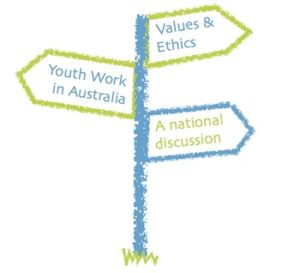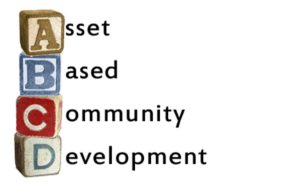ABCD for Youth Work
Much of 2016 was horrible for the profession of youth work. Our funding was cut… yet again, more of our colleagues lost their jobs and still more left because of burnout. Much of our discussion of the profession of youth work has focussed on what we don’t have and what we aren’t yet. Aside from a few fledgling state based professional associations our move towards developing the profession of youth work has stalled. So what next? What is the next step for us in developing the profession of youth work in Australia? What can we learn from Asset Based Community Development?
 To begin with I think we need to re-evaluate where we are at and where we want to be. For the last few years we have rested on the academic work of he last decade to frame our arguments around professionalism. There has been a glaring omission in this research, the voice of the youth worker. For the most part the work on the development of professional youth work in Australia has been the purview of academics, peak bodies and industry groups. We need to hear what those on the front line want from a professional association. We also need to ask what this association would look like?
To begin with I think we need to re-evaluate where we are at and where we want to be. For the last few years we have rested on the academic work of he last decade to frame our arguments around professionalism. There has been a glaring omission in this research, the voice of the youth worker. For the most part the work on the development of professional youth work in Australia has been the purview of academics, peak bodies and industry groups. We need to hear what those on the front line want from a professional association. We also need to ask what this association would look like?
One framework that could help us to begin reframing the discussion is Asset Based Community Development (ABCD). Asset-based community development (ABCD) is a methodology for the sustainable development of communities based on their strengths and potentials. It involves assessing the resources, skills, and experience available in a community; organizing the community around issues that move its members into action; and then determining and taking appropriate action
 Liberation is a key focus of youth work theory and is a focus we should consider in professionalising. Harvard University academic Rosabeth Moss Kanter says that when we do change to people, they experience it as violence, but when people do change to themselves, they experience it as liberation. There are currently three groups in the debate; those who are in favour of professionalising, those who are against professionalising and those who are apathetic to the whole debate. None of these groups are experiencing liberation.
Liberation is a key focus of youth work theory and is a focus we should consider in professionalising. Harvard University academic Rosabeth Moss Kanter says that when we do change to people, they experience it as violence, but when people do change to themselves, they experience it as liberation. There are currently three groups in the debate; those who are in favour of professionalising, those who are against professionalising and those who are apathetic to the whole debate. None of these groups are experiencing liberation.
We are a divided community. Partly this is due to the competitive nature of government funding, partly our qualification system and partly how our services are set up. We have become so entrenched in the deficits based funding models that we see our professional deficits. We have so brought into the minimum qualifications mentality and graduate so few postgrads that the notion of becoming a highly educated profession is fascicle. We also have difficulty transitioning between statutory and non-government service provision. Honestly we focus more on our diversity than we do on the things that make youth work cohesive.
Its easy these days to focus on what is wrong in youth work. Like I said, its embedded in our way of thinking. We need to move as Cormac Russell states from, “whats wrong to whats strong” in our youth work community. What assets do we bring to the question of professionalising? What is our strength? How can we use our strengths to meet our agreed goals? We need to build our community. We need a clear goal for youth work as a profession. Perhaps ABCD can help us to develop these areas.